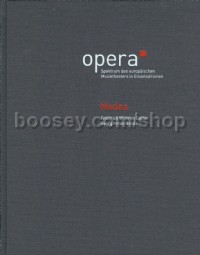Medea - A melodrama interspersed with music
Medea - A melodrama interspersed with music
Special Offer
* Estimated price converted from UK retail price
Georg Anton Benda‘s melodrama „Medea“ (1775) was one of the most successful German musical theatre works of the late 18th century. With a libretto by Friedrich Wilhelm Gotter, the work soon became a great influence within the melodrama genre. For several decades, it was performed all over central Europe, developing an impressive reception history. Between 1775 and about 1790, the melodrama was considered an extremely popular (albeit controversial) part of musical theatre, in particular in German-speaking regions. Consequently, Benda’s „Medea“ was at the center of many heated debates.
Unlike opera, the melodrama does not present the libretto in sung form, but rather, the text is spoken and combined with orchestral music and scenes. The traditional opera forms (aria, recitative, ensemble, chorus) are dissolved and replaced by a new interplay of music, speech, and scenes. A focus on a single protagonist and the quick, delicate alternation between spoken text and music allows for the development of conflicting and contradictory psychological profiles with a heightened intensity within the melodrama.
Near the end of his life, Benda revised the work significantly, drawing from his experience of real performances and their effectiveness. The changes leading to the new version of his „Medea“ music were quite extensive, affecting almost every single measure: numerous details of the part writing (tempi, voice leading, rhythms, accompanying figures etc.) were revised, the instrumentation was changed, middle voices were led in a more lively manner, and the music as a whole was shortened and effectively compressed. The composer regarded the latter, modified „Medea“ as the authorized version of the work. The premiere took place in 1784 in Mannheim, however, the altered work received little attention since then and has become tangible again for the first time with the OPERA Edition. All previous editions of the work – and along with them, all previous recordings – are based on the earlier version of 1775.
The third volume of the OPERA series “Medea” contains a linen-bound book and the edirom on a USB stick in credit card format. The number of users permitted to simultaneously use the digital content of the edition is not limited.




